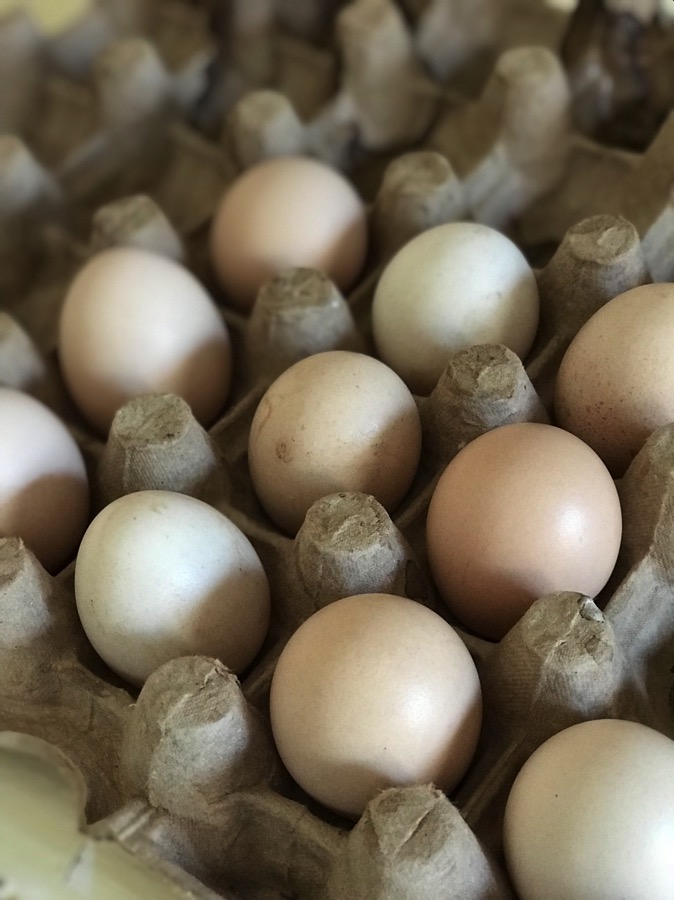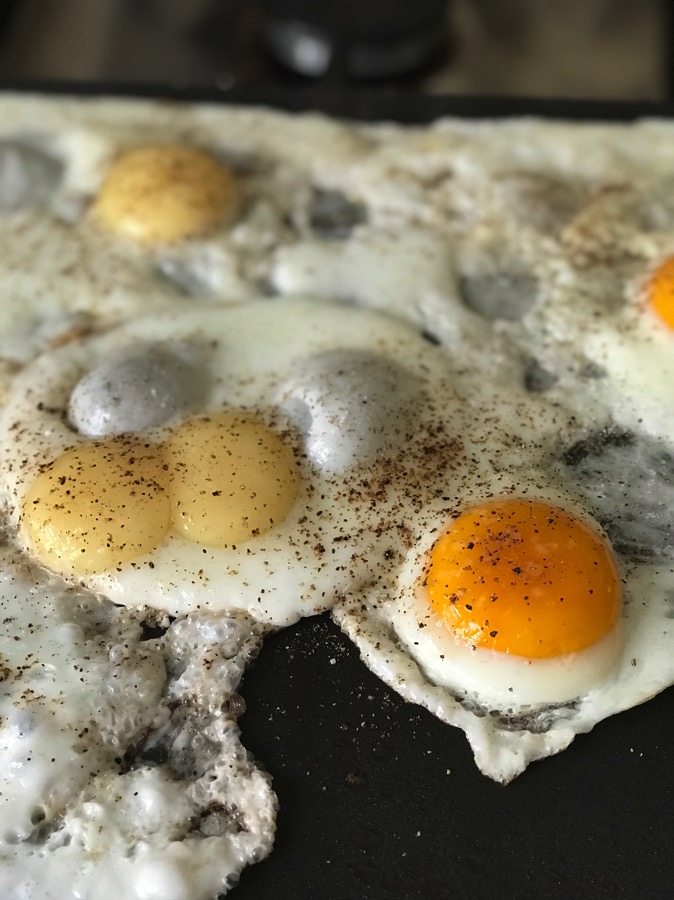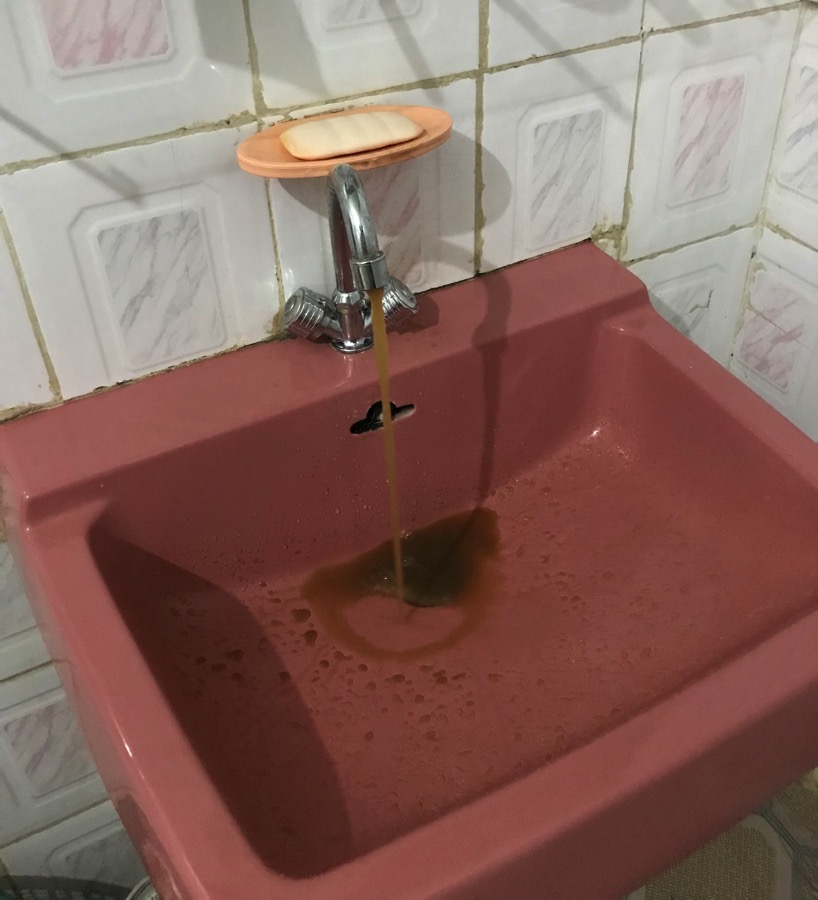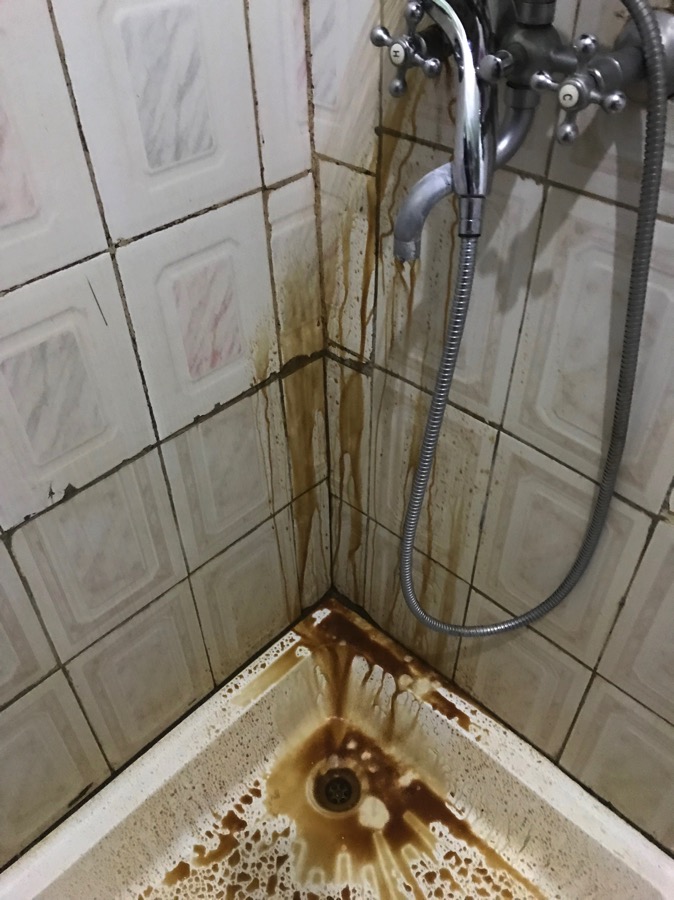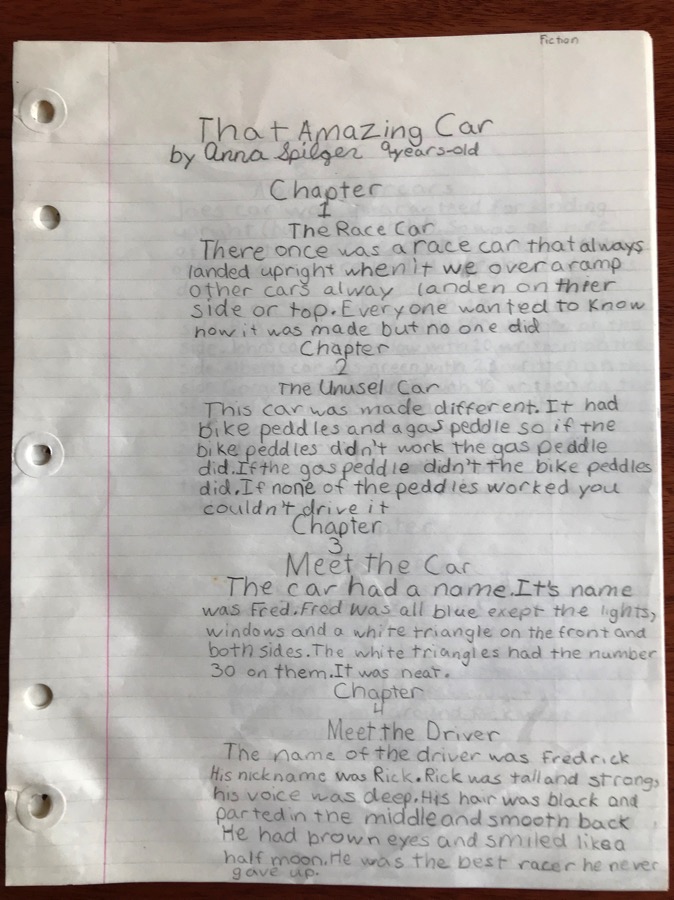
Last week, we spent the week sorting through old books and papers. We reorganized our bookshelves and got rid of things we weren’t using, didn’t need, or that the kids had outgrown.
In the process of all that, I came across one of the first “novels” I ever wrote. I’ve typed it up here for your enjoyment. I corrected most of the spelling errors but left some of the grammatical ones. I also discovered a potential reason I have trouble picking character names — I used them all up in this story. 😀
You might also note that my 9 year old self thought a moral was an essential element for a novel. My much older self laughed to tears over the moral my 9 year old self chose. Especially since said 9 year old self was rather obsessed with winning.
Enjoy!
That Amazing Car
by Anna Spilger 9 years old
Chapter 1
The Race Car
There once was a race car that always landed upright when it went over a ramp. Other cars always landed on their side or top. Everyone wanted to know how it was made but no one did.
Chapter 2
The Unusual Car
This car was made different. It had bike pedals and a gas pedal so if the bike pedals didn’t work, the gas pedal did. If the gas pedal didn’t work, the big pedals did. If none of the pedals worked, you couldn’t drive it.
Chapter 3
Meet the Car
The car had a name. It’s name was Fred. Fred was all blue except the lights, windows, and a white triangle on the front and both sides. The white triangles had the number 30 on them. It was neat.
Chapter 4
Meet the Driver
The name of the driver was Fredrick. His nickname was Rick. Rick was tall and strong. His voice was deep. His hair was black and parted in the middle and smoothed back. He had brown eyes and smiled like a half moon. He was the best racer. He never gave up.
Chapter 5
About the Other Cars
Joe’s car was guaranteed for landing upright (but it never did). So was all nine of the other cars, except Rick. None of the other cars ever landed upright. But Rick’s did.
Joe’s car was white with 18 written on the side. Bill’s car was red with 100 written on the side. John’s car was yellow with 10 written on the side. Albert’s car was green with 23 written on the side. Gorge’s car was purple with 90 written on the side. Ken’s car was brown with 88 written on the side. Alan’s car was orange with 76 written on the side. Gilbert’s car was gray with 66 written on the side. And Peter’s car was black with 59 written on the side. All the cars had the numbers written on white triangles.
Chapter 6
The Big Race
The race was just beginning. Joe was in the lead but Rick was just behind him, pedaling as fast as he could. He had decided to bike pedal because he’d never done it before. He pushed the gas pedal and went ahead of Joe. Just then, on their last time around, Rick went over the ramp, then Joe, then —
Chapter 7
The Accident
Rick had just cross the finish line when Joe went over the ramp and landed top-side down. The other cars stopped, not wanting to hurt him more. Rick turned around and went back to Joe, pulled him out of the wreck, called an ambulance, and went with him to the hospital. Joe was in critical yet stable condition.
Chapter 8
The Repentant
When Rick walked into Joe’s room, Joe said, “Rick, we drivers have envied you, but mostly me. You see, we thought you were trying to make yourself great. I think you proved that you weren’t today. I’m sorry” “That’s alright,” said Rick, “and from now on let’s share the winning sensation, okay?” And they did.
The End
Moral: Share the sensation of winning, don’t get too proud.

